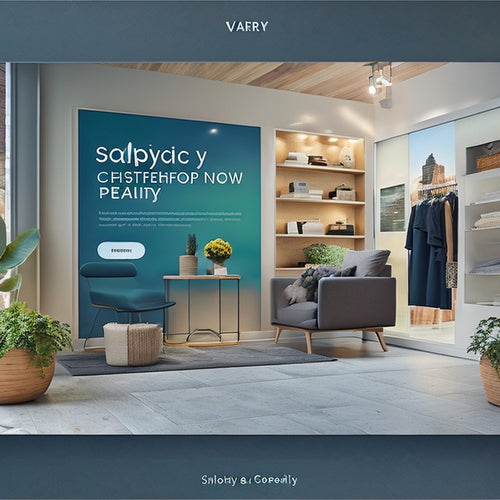
The Power of Personalized Content
Share
The power of personalized content is a topic of interest that delves into the advantages and difficulties associated with the utilization of data to tailor consumer experiences when engaging with a brand. Content personalization entails the utilization of algorithms to customize the content seen by customers based on their preferences and requirements. Research suggests that companies implementing content personalization strategies have experienced increased revenue and outperformed competitors in key performance indicators.
Personalized content can be delivered through various channels such as customized web pages, product recommendations, retargeted advertisements, GPS-based map applications, and personalized emails. However, concerns regarding privacy and data security present significant challenges in the realm of personalized content marketing. Striking a balance between personalization and privacy regulations, while fostering trust with customers through transparent data practices, is crucial for marketers.
Content personalization enables companies to identify their target audiences, meet their needs, and provide tailored content experiences. The benefits of content personalization include driving revenue growth, fostering stronger customer engagement and relationships, and facilitating marketers' ability to connect with their audience amidst the inundation of information.
- Content personalization drives revenue growth and outperforms competitors in key success metrics.
- Personalized content creates stronger customer engagement and helps build relationships.
- Balancing personalization with privacy regulations is crucial for marketers.
- Mapping the customer journey and delivering tailored content experiences are essential for successful personalization strategies.
Benefits of Personalized Content Marketing
Personalized content marketing offers a range of benefits in terms of increasing customer engagement, boosting revenue growth, enhancing brand loyalty, improving customer experience, and differentiating from competitors.
Increase Customer Engagement
To enhance customer engagement, tailoring content to match individual interests and preferences has proven to be an effective strategy. Personalized content for e-commerce and personalization in email marketing are two key areas where this strategy can be implemented.
By analyzing customer data and employing algorithms, businesses can deliver content that is specifically relevant to each customer, increasing their level of engagement with the brand. This approach allows for a more customized experience, providing customers with the information and offers that are most likely to resonate with them.
In e-commerce, personalized content can include product recommendations based on previous purchases or browsing behavior.
In email marketing, personalization can involve addressing customers by their name and tailoring the content of the email to their specific interests.
Boosts Revenue Growth
One of the advantages of tailoring content to match individual interests and preferences is its potential to drive revenue growth. Personalized content has a significant impact on customer retention, as it creates a stronger engagement and relationship with the audience.
By delivering relevant and customized content, companies can break through the clutter and connect with their target market on a deeper level. This increased customer engagement leads to higher conversion rates, as personalized content resonates more effectively with individuals, prompting them to take desired actions.
Research has shown that content personalization initiatives have a 67% higher conversion rate, indicating the clear benefits of this strategy. By investing in personalized content platforms and strategies, companies can exceed their revenue targets and achieve a significant return on investment.
Incorporating personalized content into marketing efforts is an innovative approach that not only enhances customer experience but also drives revenue growth.
Enhances Brand Loyalty
Enhancing brand loyalty can be achieved through the implementation of tailored and customized experiences that resonate with individual customer preferences and interests. Personalized content plays a crucial role in strengthening brand loyalty by creating a deeper connection between the brand and the customer.
By delivering content that is specifically targeted to meet the needs and desires of each customer, brands can significantly impact customer retention. When customers feel that the brand understands and values their unique preferences, they are more likely to remain loyal and continue supporting the brand.
Moreover, personalized content enhances customer satisfaction by providing relevant and engaging experiences that align with their interests. This personalized approach not only helps break through the clutter of generic marketing messages but also fosters a sense of trust and loyalty, ultimately leading to long-term customer relationships.
Improves Customer Experience
Improving the customer experience is a key benefit of implementing tailored and customized experiences that resonate with individual customer preferences and interests. Personalized content plays a crucial role in enhancing customer satisfaction and retention.
By delivering content that is relevant and specifically tailored to each customer's needs and interests, businesses can create a more engaging and meaningful experience for their customers. This personalized approach helps to build stronger connections with customers, leading to increased satisfaction and loyalty.
Research has shown that personalized content has a significant impact on customer retention, with personalized experiences leading to higher levels of customer satisfaction and a greater likelihood of repeat purchases. By leveraging personalized content, businesses can not only provide a more enjoyable customer experience but also foster long-term customer relationships and drive business growth.
Differentiates From Competitors
Differentiating from competitors, tailored and customized experiences that cater to individual customer preferences and interests contribute to a unique and distinctive brand identity.
Personalization in content has become a key strategy for businesses to gain a competitive advantage. By leveraging data about consumers, companies can create personalized content that resonates with their target audience, leading to increased customer engagement and retention.
Personalized content allows businesses to deliver relevant and tailored experiences that meet the specific needs and interests of their customers. This not only helps to build stronger relationships with customers but also enhances customer satisfaction and loyalty.
By investing in personalized content, businesses can differentiate themselves from their competitors and position themselves as innovative and customer-centric brands.
Overall, personalized content plays a crucial role in driving customer retention and ultimately contributes to the success and growth of a business.
Tips for Implementing Personalized Content Marketing
Targeted audience segmentation, customized content delivery, and data-driven personalization strategies are crucial aspects of implementing personalized content marketing.
By segmenting the audience based on various factors such as demographics, behavior, and preferences, marketers can tailor their content to resonate with specific groups, resulting in higher engagement and conversion rates.
Customized content delivery ensures that the right message is delivered to the right audience at the right time, enhancing the overall customer experience.
Data-driven personalization strategies enable marketers to leverage customer data to create personalized experiences, ultimately driving customer satisfaction and loyalty.
Measuring the effectiveness of personalized content allows marketers to optimize their strategies and make data-informed decisions, leading to continuous improvement and better results.
Targeted Audience Segmentation
Segmentation of the audience based on specific criteria allows marketers to tailor content to the unique needs and preferences of different customer groups. By dividing the audience into distinct segments, marketers can create targeted messaging that resonates with each group.
This approach recognizes that not all customers have the same interests, desires, or purchasing behaviors. Through customer segmentation, marketers can identify key characteristics and behaviors that define each segment, enabling them to develop content strategies that are more relevant and engaging.
This level of personalization enhances the overall customer experience and increases the likelihood of conversion. Moreover, targeted messaging based on customer segmentation allows marketers to stay ahead of the competition by delivering innovative and cutting-edge content that meets the specific needs of each segment.
Customized Content Delivery
Customized content delivery is a strategy that tailors the distribution of information to individual consumers based on their unique characteristics and preferences. This approach aims to provide a personalized experience for each consumer by utilizing various customization techniques and personalized content strategies.
By analyzing consumer data, algorithms can determine the specific needs and preferences of individuals, allowing for the creation of tailored content that resonates with them. This innovative approach to content delivery offers several benefits.
Firstly, it enhances customer engagement and satisfaction by providing relevant and meaningful content. When consumers receive content that is specifically tailored to their interests and needs, they are more likely to engage with it and find value in it. This can lead to increased customer satisfaction and loyalty.
Secondly, customized content delivery helps companies stand out from their competitors by delivering personalized experiences. In today's saturated market, consumers are constantly bombarded with generic content. By offering personalized content, companies can differentiate themselves and create a unique brand experience that sets them apart.
Finally, customized content delivery drives revenue growth by increasing customer loyalty and conversion rates. When consumers feel that a brand understands and caters to their individual needs, they are more likely to become loyal customers and make repeat purchases. Additionally, personalized content can also improve conversion rates by delivering the right message to the right person at the right time.
Data-Driven Personalization Strategies
Data-driven personalization strategies leverage consumer data to create tailored experiences that align with their preferences and behaviors, enhancing customer engagement and driving business success.
However, implementing data-driven personalization comes with its own set of challenges. Privacy concerns and data security have led to increased demands for transparency and compliance with regulations, such as the General Data Protection Regulation (GDPR) in Europe. Balancing personalization with privacy regulations is crucial for marketers to build trust with their customers.
Despite these challenges, there are best practices for content personalization that can help overcome these obstacles. Mapping the customer journey and understanding touchpoints can provide valuable insights for delivering tailored content experiences. Additionally, investing in personalization platforms and segmentation strategies can yield significant improvements in accuracy, conversion rates, and revenue targets.
Measuring Personalized Content Effectiveness
One important aspect to consider when evaluating the effectiveness of personalization strategies is the measurement of key performance indicators (KPIs) that reflect customer engagement and business outcomes.
Measuring the effectiveness of personalized content is crucial in understanding the impact of these strategies on customer satisfaction and business success. Impact assessment allows marketers to determine if personalized content is achieving its intended goals and delivering the desired results.
By measuring key indicators such as click-through rates, conversion rates, customer retention rates, and revenue growth, organizations can gain insights into the effectiveness of their personalization efforts. This data-driven approach provides valuable insights that can inform decision-making and help optimize personalization strategies to better meet customer needs and drive business outcomes.
Helpful Tutorials for Personalized Content Marketing
A range of tutorials are available that provide valuable guidance on implementing effective strategies for personalized content marketing. These tutorials offer insights into best practices for content personalization, offering marketers the opportunity to enhance their understanding and implementation of personalized content marketing strategies.
By exploring personalized content case studies and learning from successful examples, marketers can gain practical knowledge and inspiration for their own campaigns. These tutorials cover various aspects of personalized content marketing, including data analysis, customer segmentation, content creation, and delivery. They provide step-by-step instructions, tips, and tools to help marketers leverage the power of personalized content to engage their target audience and drive better results.
Learn More About Personalized Content Marketing ROI
To understand the return on investment (ROI) of implementing personalized content marketing strategies, it is important to examine the impact it has on revenue growth and key success metrics.
Personalized content ROI metrics provide valuable insights into the effectiveness of these strategies. Case studies on successful personalized content strategies demonstrate the tangible benefits and potential for significant returns.
For instance, Silicon Labs experienced a 150% improvement in product interest accuracy with customer segmentation. Additionally, a study by Forrester Consulting revealed that content personalization exceeded revenue targets by 68%. Furthermore, initiatives focused on personalized content have shown a 67% higher conversion rate.
These impressive numbers showcase the clear benefits of content personalization and its potential to drive revenue growth.
Frequently Asked Questions
How Can Personalized Content Marketing Improve Customer Engagement and Relationships?
Personalized content marketing improves customer engagement and relationships by enhancing the customer experience and increasing customer loyalty. By tailoring content to individual interests and preferences, companies can create stronger connections, drive customer satisfaction, and foster long-term brand loyalty.
What Are Some Effective Strategies for Balancing Personalization With Privacy Regulations?
Some effective strategies for balancing personalization with privacy regulations include implementing transparent data practices, complying with privacy laws such as GDPR, and building trust with customers through clear communication about data usage and protection.
How Does Content Personalization Help Companies Outperform Their Competitors in Key Success Metrics?
Content personalization helps companies outperform competitors in key success metrics by providing personalized experiences that drive revenue growth, create stronger customer engagement, and deliver relevant content tailored to individual interests and preferences, giving them a competitive advantage.
What Are the Potential Challenges and Concerns Surrounding Data Security in Personalized Content Marketing?
Data privacy concerns and potential security risks are significant challenges in personalized content marketing. The need to comply with regulations such as GDPR and establish transparent data practices is crucial for marketers to balance personalization with privacy regulations and build trust with customers.
Can You Provide Examples of Successful Companies That Have Achieved Significant ROI Through Content Personalization?
Content personalization case studies demonstrate the significant ROI achieved by successful companies. Benefits of personalized content marketing include revenue growth, outperforming competitors, stronger customer engagement, and higher conversion rates.
Related Posts
-
How Do Shoppable Videos Contribute to an Enhanced Customer Experience?
In today's digital age, businesses are constantly seeking innovative ways to enhance the customer experience. One su...
-

Can You Add Videos to Product Pages on Shopify
This article examines the benefits of incorporating videos into product pages on the Shopify platform. By analyzing ...
-

What Is the Best Pop Up for Shopify
Pop-up plugins for Shopify have gained widespread popularity due to their ability to enhance user experience and boo...

